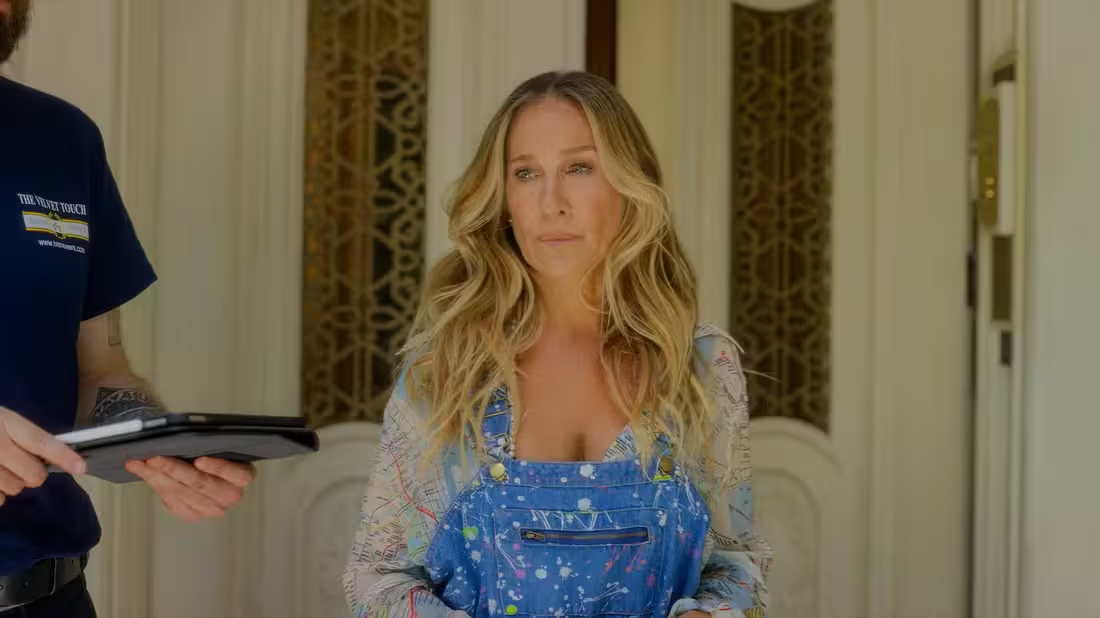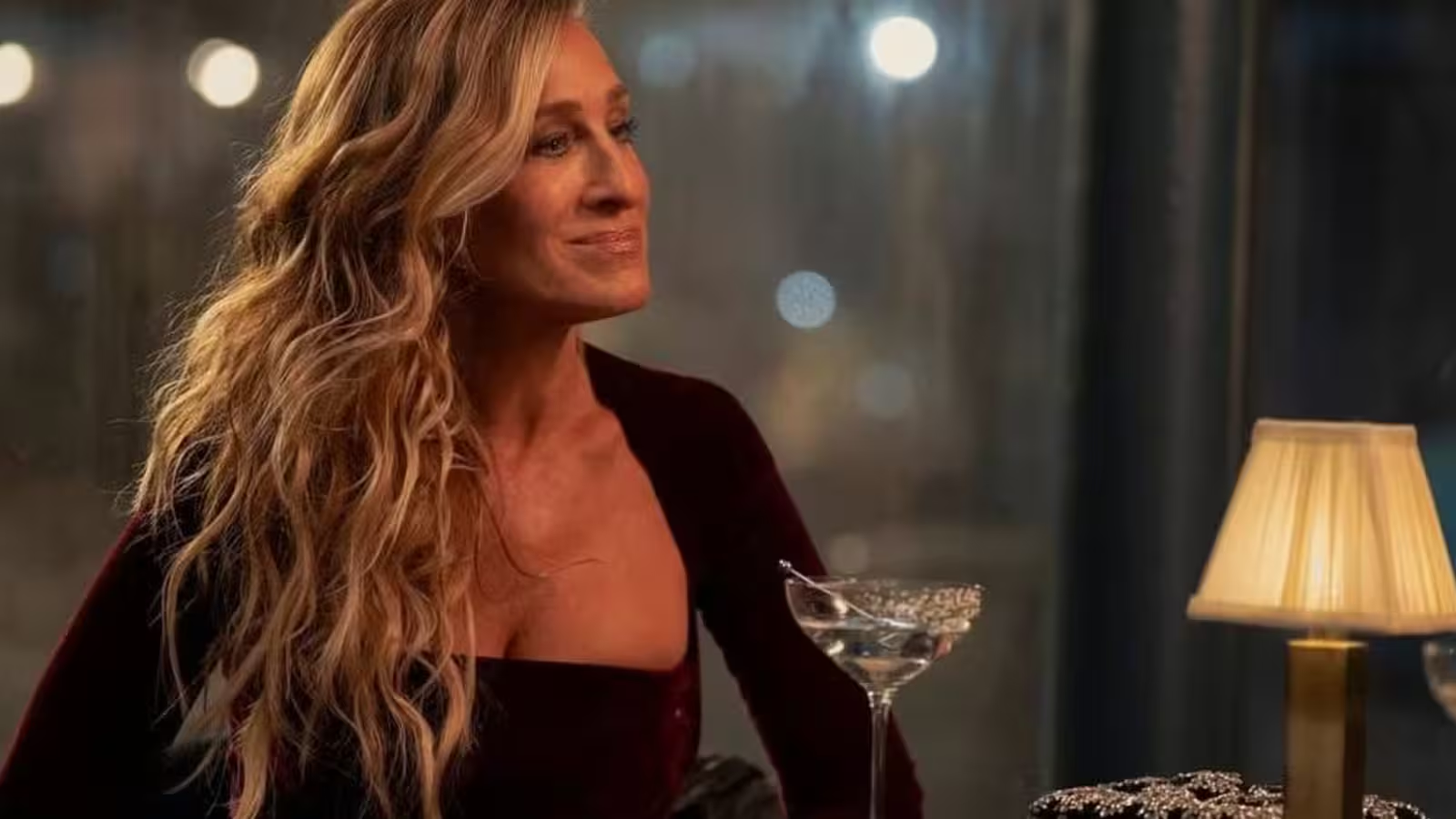8 Minutes
Spoiler warning: major plot points from And Just Like That Season 3, Episode 11 ("Forget About the Boy") follow.
Overview — A revival that circles back
And Just Like That’s penultimate episode serves up a surprising bit of déjà vu: Carrie Bradshaw (Sarah Jessica Parker) faces the same editorial pushback she did in the revival’s first season. In season 3, Episode 11 Carrie completes a historical-fiction novel and brings it to her publisher — only to be told the ending is too bleak. The scene echoes the earlier moment when Carrie’s raw memoir about Mr. Big’s death, Loved and Lost, drew a request for an epilogue. For viewers invested in Carrie’s arc across Sex and the City and its continuation, the repetition is frustrating to some and resonant to others.

Plot summary — the book, the editor, and the requested epilogue
In "Forget About the Boy," Carrie finishes a debut historical novel that reimagines a 19th-century woman confronting love and loss. Her editor Amanda (Ashlie Atkinson) is captivated by the prose but balks at the novel’s final image: the protagonist — referred to simply as "the woman" — sitting alone in a garden after her lover’s death. Amanda praises the writing yet warns that an isolated woman at the end reads like a tragedy to period readers. She asks Carrie to add an epilogue to soften the final note and make the book more marketable.
Back in New York, Carrie confides in her longtime friends Charlotte (Kristin Davis) and Miranda (Cynthia Nixon). While Carrie likes the integrity of the darker ending, she admits she’s tempted to accede — not only for artistic compromise but to avoid commercial consequences, like having her book relegated to discount tables. Ultimately, Carrie writes the requested epilogue, a choice that mirrors earlier scenes where publishing realities collided with personal truth.
How this mirrors Season 1
Fans familiar with And Just Like That’s early episodes will recall the parallel: in season 1, after Mr. Big’s death, Carrie wrote a candid memoir. Amanda loved the manuscript’s honesty but called it "brutal" and suggested a softer coda so readers wouldn’t be overwhelmed. Amanda even encouraged Carrie to start dating again to offer hope — and Carrie reluctantly did, navigating grief and new possibilities. The revival’s latest editorial demand lands like a thematic echo, asking whether Carrie’s voice will bend to what the market expects.

Cast and key contributors
- Sarah Jessica Parker — Carrie Bradshaw (lead)
- Kristin Davis — Charlotte York
- Cynthia Nixon — Miranda Hobbes
- John Corbett — Aidan Shaw (Carrie’s on-and-off love from the original Sex and the City)
- Johnathan Cake — Duncan Reeves (And Just Like That cast member and Carrie's collaborator)
- Ashlie Atkinson — Amanda (Carrie’s editor)
- Chris Noth — Mr. Big (referenced through Carrie’s earlier memoir storyline)
- Jon Tenney, Nicole Ari Parker — supporting players tied to Carrie’s post-Big arcs
The series is produced for HBO Max by the creative team behind the Sex and the City universe, with Michael Patrick King associated as a key creative force in the franchise. The show remains anchored in New York City — a character in itself — with production values emphasizing fashion, location shooting, and the social texture of contemporary Manhattan.
Production notes — writing, tone, and return to familiar themes
And Just Like That operates at the intersection of serialized television drama and a glossy cultural commentary about modern life, relationships, and aging. The decision to have Carrie write a historical novel (rather than a straight memoir) adds a layer of fictional distance, but the editorial push to alter an ending exposes the same tension: truth versus palatability. Production-wise, the episode leans into intimate interiors for editorial meetings and broad, cinematic exteriors for Carrie’s reflective moments. Costume and design choices continue to signal Carrie's identity as a style icon, while the show’s writers and producers use the publishing subplot to interrogate commercial pressures and audience expectations.
Critical reception — why fans are divided
The reaction to this repeat of a storyline has been mixed. Critics and viewers sympathetic to Carrie’s arc see thematic coherence: grief, reinvention, and the compromises of a professional woman in a still-commercial industry are woven across the revival. For those critics who wanted fresh narrative territory, however, the echo feels like retracing familiar beats instead of daring forward.
Praise has centered on Sarah Jessica Parker’s grounded performance, which carries the emotional weight of both the memoir and the novel scenes. Detractors argue that repeating the publishing-editor epilogue request undercuts dramatic momentum and invites frustration from long-time fans expecting surprising developments in the series finale.
Personal take — repetition as theme, not just retread
As a viewer and critic of television drama, the repeated editor-request motif can be read two ways. On one hand, it risks diminishing the impact of earlier grief-centered storytelling by reusing a familiar beat. On the other, it’s an intentional thematic device: Carrie keeps confronting the same industry gatekeepers, which underscores how institutions insist on framing women’s stories in palatable ways — whether those stories are about a 19th-century widow or a modern New Yorker processing loss.
That editorial pressure also reframes Carrie’s character development. Each time she’s nudged toward a "happier" ending — and each time she negotiates whether to comply — we see her wrestle with authenticity versus marketability. The epilogue she ultimately adds in "Forget About the Boy" feels less like capitulation and more like a strategic compromise: a way to release the work into the world without erasing its truth.

What the epilogue might signal for the series finale
In Carrie’s fictional epilogue, the woman’s life after loss remains open: single, curious, and potentially intrigued by a "handsome widower," but not necessarily prioritizing romantic love. That ambiguity may mirror how the series itself plans to end — possibly with Carrie untethered, independent, and not defined by a final romance. The narrative leaves the door open while suggesting that Carrie’s next chapter might be about self-definition rather than coupledom.
Why this matters for fans of Sex and the City and TV drama
This storytelling choice forces aficionados of Sex and the City to ask whether familiarity is comfort or creative stasis. For anyone who cares about contemporary television, publishing stories, or portrayals of women navigating loss and agency, the episode prompts a larger conversation about how TV frames female protagonists and how much of their arcs are shaped by external expectations — be those of editors, networks, or audience appetites.
Whether you find the replayed scene satisfying or repetitive, it’s ultimately another layer in Carrie Bradshaw’s long-running journey: an exploration of love, loss, career compromises, and the difficult work of staying true to a voice while surviving in a commercial world.
Source: screenrant


Leave a Comment